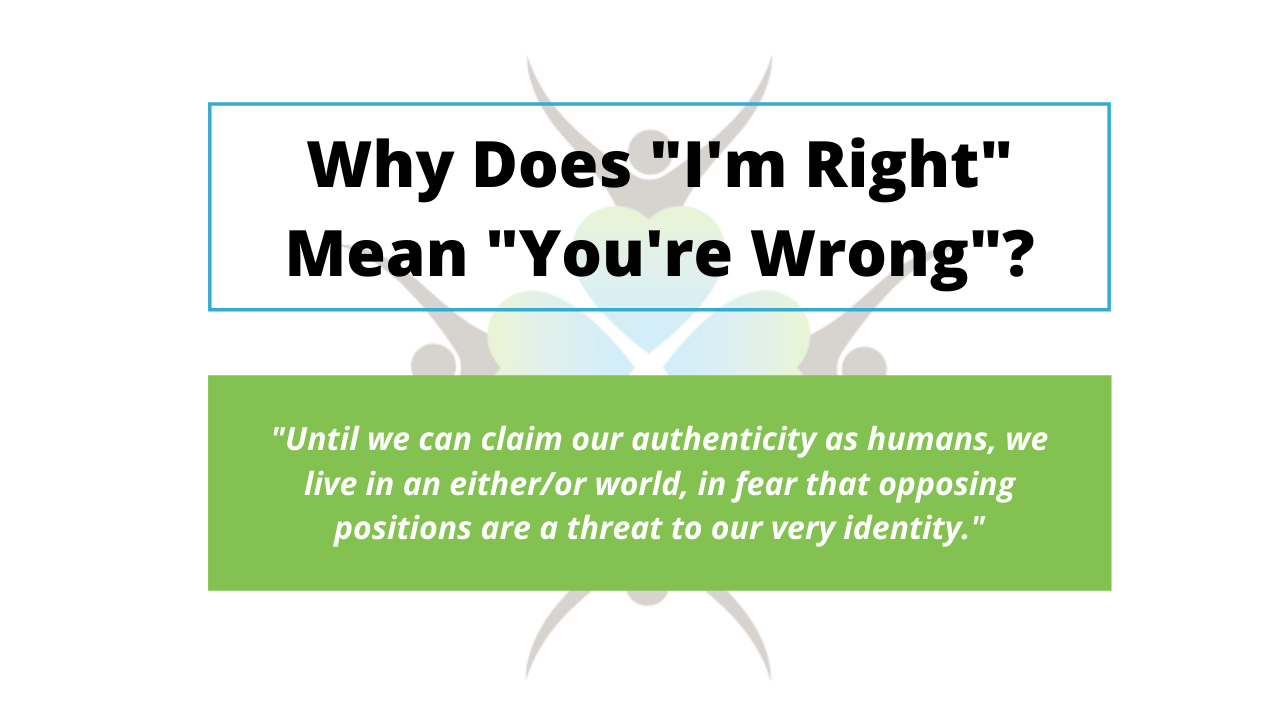
Why Does "I'm Right" Mean "You're Wrong"?
Apr 13, 2017Let’s face it – we live in a very polarized society. All day, we hear scary stories about the spread of disease and how diagnosis is being mishandled. We’re told about tension in our government and accusations of abuse of power. We see talking heads spewing emotional arguments without always having the facts. We spend a lot of time arguing and pointing fingers to place blame on others for what’s going wrong. We perpetuate stereotypes and tend to believe that there’s one right answer for everything.
If I’m right, then you’re wrong.
The core beliefs behind either/or thinking are stemmed in fear. Changing our base beliefs, accepting that there may be beliefs different from our own, or, heaven forbid, admitting we might be wrong, can be fearful.
So, rather than trying to understand others, we get entrenched in our own positions and fight back. Rather than trying to discover our common humanity, we engage in actions that perpetuate –isms and phobias.
Somehow, we believe that if we see things from a different perspective, we aren’t living our values. In fact, we believe we may be admitting that we’re wrong or seen as unauthentic.
In these polarized times, it’s important to focus on the essential humanity of us all.
- We are all human, and we deserve to be safe.
- We are all human, and we deserve to be respected.
- We are all human, and we deserve to be loved.
Our authenticity lies in our ability to admit we’re human. Being human means admitting that we’re not always right. It means making mistakes. It means allowing other humans to be human and make mistakes as well. Until we can claim our authenticity as humans, we live in an either/or world, in fear that opposing positions are a threat to our very identity.
In an attempt to protect our positions, we’ve lost the capacity for self-reflection. Ask yourself:
- How might my actions and words be perceived as racist? As homophobic? As un-Christian/Muslim/Jewish/etc?
- How might what I’m saying or what I’m doing detrimentally affect others?
- How might it support them and allow them their own power, without having to give up my own?
We need to find the common humanity in all of us. An essential skill is practicing both/and thinking. It’s possible to understand different perspectives, even though those perspectives may be contrary to our own. We don’t have to agree with those other perspectives – just understand them.
That means we need to have the ability to admit that we don’t have all of the answers and to engage in conversations to learn more, rather than to win.
Only when we choose to understand each other, can we begin to find real solutions to our challenges.
© 2017, Susan McCuistion


